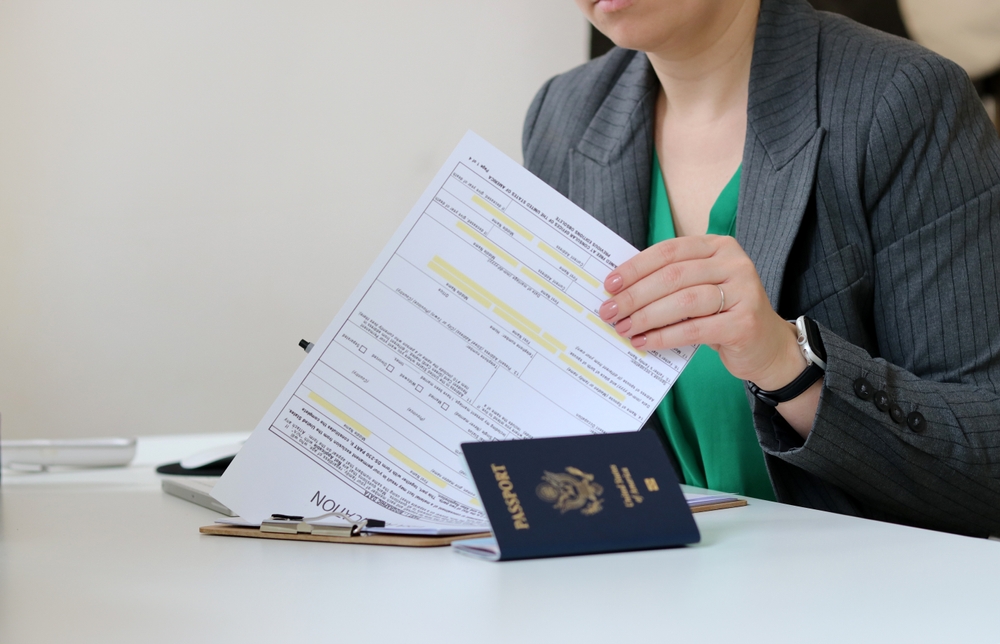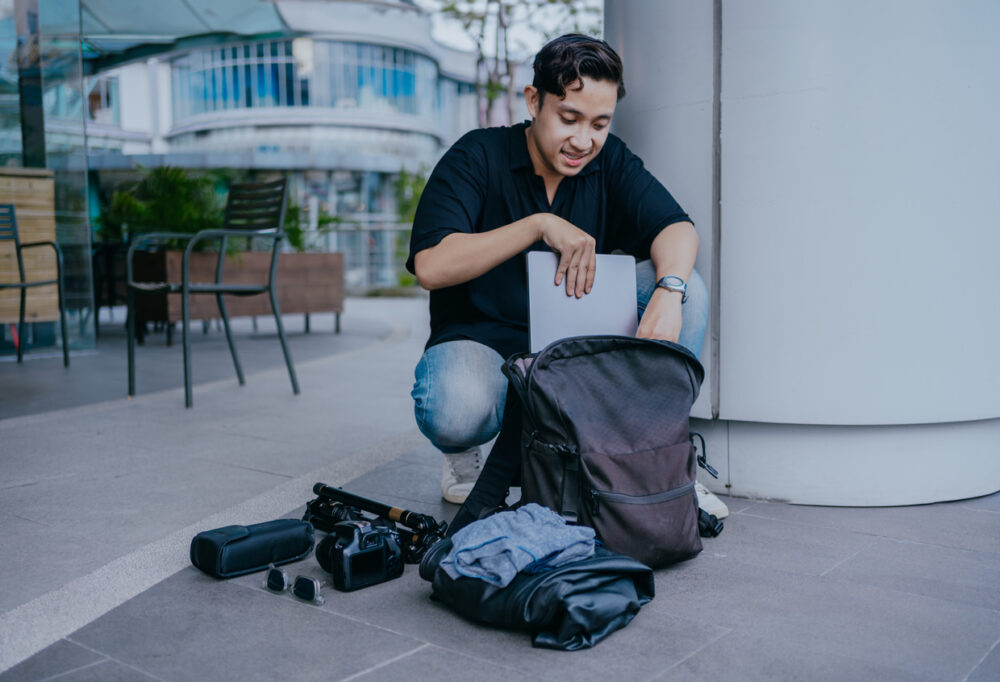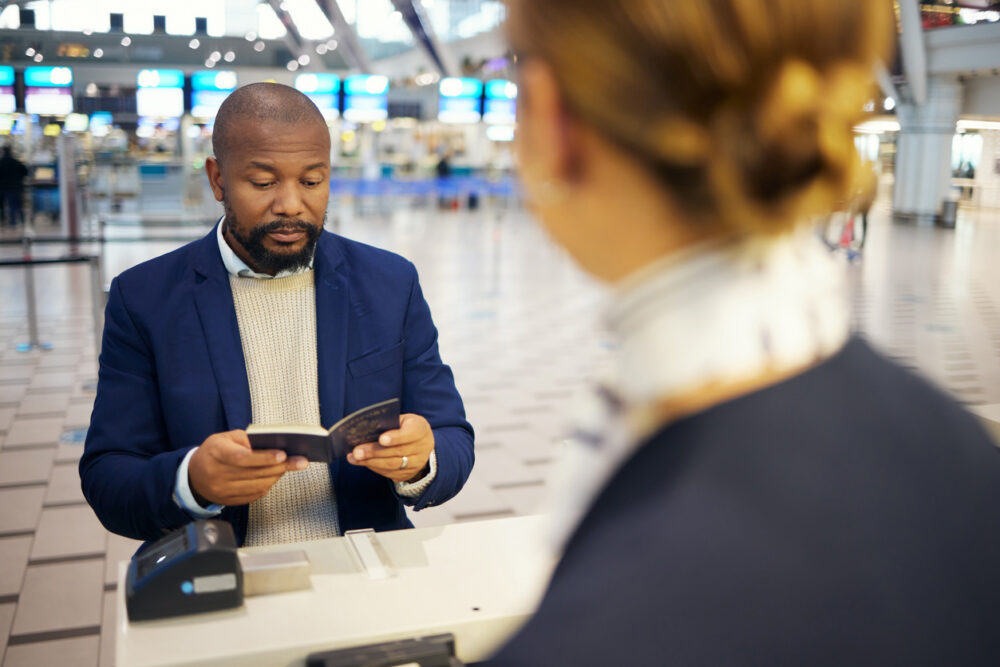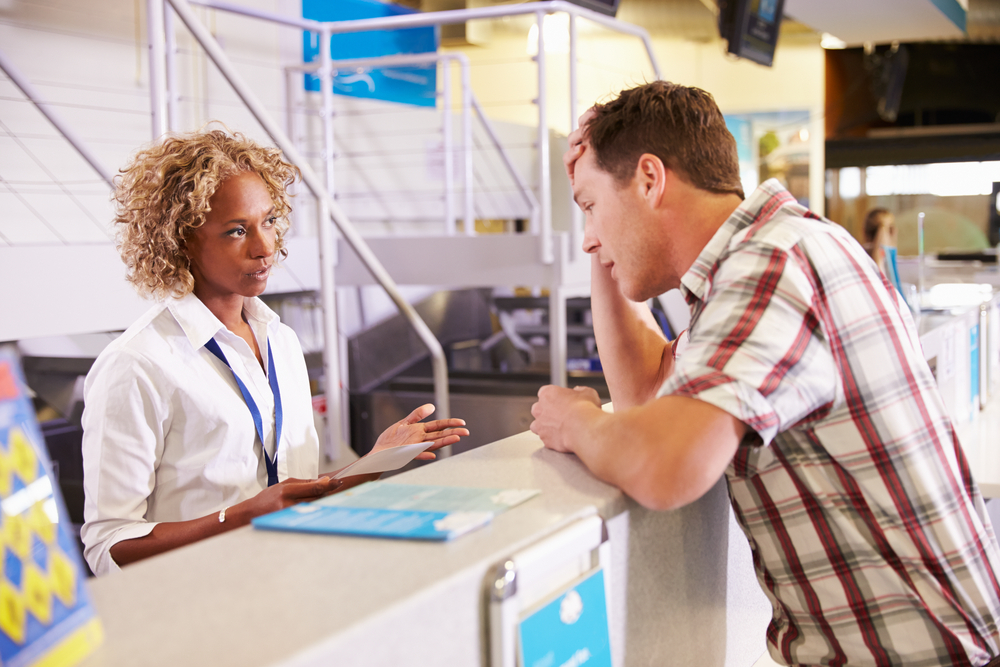Making one mistake can trigger a chain reaction you can’t stop.

Getting through an airport can feel like walking a tightrope—you’re fine until one wrong move throws everything off balance. What makes it worse is that the consequences aren’t always immediate. You might breeze past security only to find out you’re denied boarding or detained before stepping onto the plane. The tiniest errors—ones you’d never think twice about—can turn into major travel disasters.
These aren’t just rookie mistakes, either. Seasoned travelers sometimes mess up because they’ve grown too comfortable or assumed things would be the same as last time. Policies shift. Staff vary. And international airports can play by completely different rules. So while some mishaps might just cost you extra time or embarrassment, others could cause missed flights, security flags, or even an awkward encounter with airport police. Avoiding these 12 airport blunders isn’t just about convenience—it’s about keeping your entire trip from going sideways before it even begins.
1. Showing up with an almost-expired passport.

A passport that looks valid to you might not pass the airline’s rules, according to Simon Calder at The Independent. Some countries require your passport to be valid for at least six months beyond your planned return date. If yours is set to expire sooner—even if it’s still technically active—you could be denied boarding before your trip even starts. Airlines can get fined for transporting passengers who don’t meet a country’s entry requirements, so they often err on the side of caution.
It’s easy to overlook this detail when you’re focused on flights and accommodations. But when you show up at the check-in counter with a passport that’s close to expiring, your whole itinerary can unravel. Some travelers have had to miss weddings, funerals, or long-planned vacations over this seemingly small oversight. Always double-check the passport rules for the country you’re visiting—and don’t assume it’s the same as your last trip. Renew early and travel confidently.
2. Ignoring airline notifications and gate changes.

Your boarding pass is just the starting point—gate assignments can change at any moment, as mentioned by Ashley Broadwater at HuffPost. If you’re not watching your airline app or keeping an eye on the departure screens, you could be left standing at the wrong gate while your plane pushes back without you. It happens more often than you’d think, especially during busy travel seasons when delays cause a domino effect.
Sometimes the gate change announcement is quick and quiet, especially at crowded airports. If you’ve taken off your headphones and zoned out, you might miss it entirely. And if your phone is on airplane mode or you haven’t refreshed the app, those real-time updates won’t reach you. It’s not paranoia—it’s smart travel sense to stay alert until you’re actually on board. Keep your phone charged, your notifications on, and your eyes scanning for updates. Gate changes won’t wait for you to catch up.
3. Forgetting to check visa requirements.

Even experienced travelers can mess this one up. Just because you’ve been to a country before doesn’t mean the visa rules are still the same, as stated by Mary Ellen Dingley at Go Abroad. Some destinations require you to apply weeks in advance, others offer visas on arrival, and a few may have quietly changed their policies without much notice. Assume you’ll need a visa until you know for sure—and double-check with official government sources, not just travel blogs.
The worst part is that airlines might not catch the problem until it’s too late. You could be denied boarding at the gate or, even worse, allowed to fly but detained at customs when you land. It’s a nightmare scenario that can ruin your plans, waste your money, and leave you scrambling in a foreign airport. Always confirm the entry requirements based on your nationality and passport, and take screenshots of approval documents in case of tech glitches.
4. Packing restricted items in your carry-on.

TSA rules change more often than you might expect, and what was allowed on your last trip might get confiscated now. Items like certain lithium batteries, tools, or even snacks with high liquid content can flag your bag for extra screening. When that happens, you’re not just delayed—you might be pulled aside while security digs through everything in your carry-on, holding up the line and causing unnecessary stress.
It’s not just about avoiding hassle—it’s about saving time you don’t have. Getting stuck at security can mean sprinting to your gate or missing your flight altogether. Before you pack, review the TSA’s current guidelines or use their online tool to search specific items. And if you’re traveling internationally, check the destination’s restrictions too. Don’t assume you’ll get a warning. If you slip up, you’ll pay the price in delays, missed flights, or worse.
5. Booking tight layovers without buffer time.

That two-hour layover might look fine on paper, but if your first flight is even slightly delayed, everything falls apart. Airports vary wildly in layout, and getting from one terminal to another can take longer than expected. Add customs, immigration, or re-checking bags into the mix, and suddenly your “tight connection” becomes a mad dash you’re not likely to win.
Airlines won’t always wait, even if your delay was their fault. You could be stuck overnight, rerouted through cities you never planned to visit, or forced to pay extra for hotels and food while you wait for the next flight. It’s smarter to plan for delays than to assume everything will go smoothly. When booking, build in at least 3 hours for international connections and 90 minutes for domestic ones. Give yourself breathing room—your future self will thank you for it.
6. Getting too chatty at immigration.

You might think being friendly helps, but there’s a fine line between pleasant and suspicious. Immigration officers are trained to spot inconsistencies and over-explaining often raises red flags. If you start giving extra details about your itinerary, relationships, or job situation that weren’t asked for, it can lead to unnecessary questioning—or worse, denial of entry or detention.
This is one situation where less really is more. Answer only what’s asked, be clear and concise, and avoid trying to joke your way through it. Even small talk can backfire if the officer thinks you’re trying to distract or mislead. If you’re traveling for tourism, stick with “vacation” or “sightseeing” rather than rambling explanations. Immigration isn’t the place to wing it—practice your responses if you’re nervous and keep your documents handy to back up your answers. A calm, straightforward approach works best.
7. Trusting memory instead of verifying flight details.

It’s easy to assume your flight is at the same time as it was last year or that your gate will be the usual one. But airlines constantly tweak schedules, adjust aircraft, and change boarding procedures. Trusting your memory or relying on old habits can backfire quickly, especially if you’re traveling through a hub you don’t frequent.
Flight numbers change, boarding zones shift, and even airports can swap terminals at the last minute. One wrong assumption could send you to the wrong concourse or have you arriving at the airport too late. Always verify your flight information the night before and again before heading out. Use the airline app or website, and make sure your contact details are up-to-date so you’ll receive last-minute alerts. Don’t let a false sense of familiarity be the reason you’re stuck watching your plane take off without you.
8. Assuming PreCheck or Global Entry will always save you.

TSA PreCheck and Global Entry can make airport security a breeze—when everything’s working. But if your Known Traveler Number wasn’t added to your reservation or the system isn’t cooperating that day, you might find yourself back in the regular line. It’s jarring when you’re used to breezing through and suddenly you’re removing shoes and digging out laptops like it’s 2012.
Some airports don’t offer PreCheck at every checkpoint, and Global Entry kiosks can sometimes malfunction. The programs are great, but they’re not foolproof. Always double-check your boarding pass for the correct designation before assuming you’ll have expedited access. Give yourself the same buffer time you would without those privileges, just in case. Relying on fast-track programs is fine—unless they fail, and you’re not prepared. Flexibility is the real superpower in modern travel.
9. Not having your documents organized and ready.

Rummaging through your backpack for a passport or scrolling endlessly to find a boarding pass slows you down and stresses everyone around you. Security agents and airline staff don’t want to wait while you dig through bags or open every app on your phone. It’s one of the simplest ways to annoy airport personnel—and get flagged for further screening.
Organize everything before you reach the front of any line. Keep physical documents in one folder or wallet, and make sure digital versions are easily accessible in your travel app or photo roll. When things are smooth and efficient, you’re less likely to attract the wrong kind of attention. Plus, having your info ready shows you’re prepared and respectful of the process. It’s a small habit that can make a big difference in how your airport experience unfolds.
10. Taking photos in restricted areas.

Snapping a quick selfie or filming your boarding process might seem harmless, but many airports have strict rules about photography, especially near immigration, customs, and security checkpoints. Even filming your family going through security can get you pulled aside and questioned. Some airports—especially international ones—take it very seriously and may even delete your footage or detain you for violating regulations.
The line between casual traveler and suspicious behavior can be thinner than you think. You don’t want to be flagged because you were trying to document your trip for social media. Save the photos for areas where it’s clearly permitted, like public lounges or waiting areas. If in doubt, just don’t take out your phone. A single image in the wrong place can turn into a very uncomfortable conversation that ruins your entire travel vibe—and possibly delays your flight.
11. Skipping the airport map before you go.

Wandering around an unfamiliar airport without knowing where anything is can waste valuable time and lead to panic. Some international airports are so sprawling that you could spend half an hour just trying to find the right security entrance or shuttle. Not knowing where you’re going means you’re more likely to miss boarding calls or rush through checkpoints flustered and out of breath.
It’s easy to avoid this kind of chaos with just five minutes of prep. Most airport websites and apps have detailed terminal maps that show you exactly where your gate, restaurants, restrooms, and lounges are located. Study it before you even leave for the airport. Knowing which terminal to go to, how to get between gates, and where you’ll clear customs can reduce your stress level by half. The more prepared you are, the smoother the journey feels—even when surprises pop up.
12. Assuming airport staff will fix your mistakes.

It’s tempting to believe that someone will help you sort things out if you mess up. But the truth is, most airport staff are overwhelmed, short-staffed, and working under strict rules. If you booked the wrong date, showed up at the wrong terminal, or missed your flight by minutes, there might be nothing they can do. And if they can help, it usually comes with fees or a long wait.
Don’t bank on sympathy from a gate agent who’s dealing with dozens of stressed passengers. Take ownership of your plans and double-check everything before you go. If you’re unsure about a policy, call the airline before heading to the airport. The fewer mistakes you make, the fewer you’ll need someone else to fix. Travel rewards the prepared, and airports are no place to test your luck. Make things easier for yourself by staying ahead of the curve.
